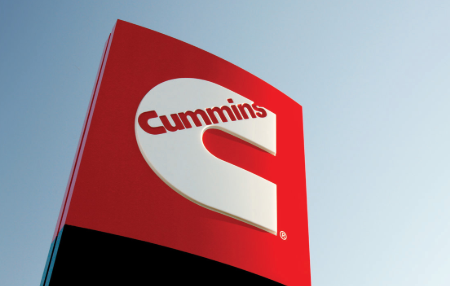SoCalGas Receives Over $7 Million in Funding from U.S. DOE Advance Zero Emissions

Projects will research and develop zero- and near-zero emissions technologies for heavy and medium-duty transportation to help address climate change and air pollution
Southern California Gas Co. (SoCalGas) announced the U.S. Department of Energy (DOE) has awarded over $7.1 million in funding to three projects advancing clean automotive transportation technologies supported by the utility. SoCalGas’ Research, Development & Demonstration department will provide $730,000 in additional funding for the projects which are led by Cummins, Inc., GTI and West Virginia University Research Corporation. The projects will advance fuel cell technology for on-road trucking and transit, near-zero emissions natural gas technology for rail locomotives, and best practices to reduce maintenance costs for alternative fuel vehicles.
“SoCalGas is committed to being an integral part of California’s energy future, and as we work on achieving our goal to be the cleanest gas utility in North America, supporting the research and development of clean transportation technologies is key,” said Yuri Freedman, senior director of business development at SoCalGas. “The transportation sector accounts for around 40% of California’s GHG emissions, and developing zero- and near-zero emissions vehicle technology is critical to mitigating the impacts of climate change.”
The projects include:
- In conjunction with Cummins Inc., this project will develop a single prototype zero-emissions fuel cell design that can power both heavy-duty class 8 trucks and transit buses. The fuel cell will be designed to be modular, scalable, and fully integrated within such trucks and buses, and aims to provide technology that could significantly reduce both greenhouse gas emissions and air pollution in California’s cities and transit corridors. Developing a single fuel cell package that can power multiple types of heavy-duty vehicles could reduce maintenance costs for these trucks and buses.
- A project led by GTI that aims to develop and demonstrate a natural gas hybrid line-haul rail locomotive that will minimize emissions below the current standards and operate on renewable natural gas. A suite of commercially available products will be integrated to create a commercially viable compressed natural gas (CNG) hybrid system to power 4,300 hp rail locomotives that meet the Tier 5 locomotive standard.
- In conjunction with West Virginia University’s Center for Alternative Fuels, Engines and Emissions (WVU CAFEE), the project will study the difference in maintenance and labor costs for new, alternative fuel trucks powered by natural gas, propane and electric compared to standard diesel trucks. This maintenance cost assessment will study the link between operational characteristics of alternative fuel vehicles and how it affects maintenance and repair activity.
“We are pleased to work with SoCalGas, the DOE and our other partners to improve cost and operational performance of hydrogen fuel cell technologies,” Amy Davis, President New Power, Cummins, Inc. “We are looking forward to moving this technology forward and bringing additional hydrogen products to our customers.”
“GTI is excited to be awarded this DOE project and work with SoCalGas, OptiFuel Systems, and other partners to demonstrate a near-zero natural gas hybrid locomotive. Advancing the technology will expand access to cleaner, affordable mobility and contribute to transportation options for consumers,” said Ted Barnes, GTI R&D Director, Energy Utilization.
“Lack of technical quality in comparison of maintenance cost between alternative fuel vehicles and conventional diesels has acted as barrier for increased adoption of AFV by heavy- and medium-duty fleets,” said Dr. Arvind Thiruvengadam (Principal Investigator) and Assistant Professor at West Virginia University. “WVU CAFEE is excited for the partnership and the funding received from SoCalGas to further research in this topic and address the critical barriers that prevent the adoption of a domestic alternative fuel sources for transportation.”
Selected projects under this funding opportunity will be managed by the Vehicle Technologies Office (VTO). VTO research pathways focus on fuel diversification, vehicle efficiency, energy storage, lightweight materials, and new mobility technologies to improve the overall energy efficiency and affordability of the transportation system.
To learn more about SoCalGas research and development projects and investments, please visit socalgas.com/smart-energy.
Category: Electric Vehicles, Equipment, Featured, Fuel & Oil, General Update, Green, News, Vehicles










